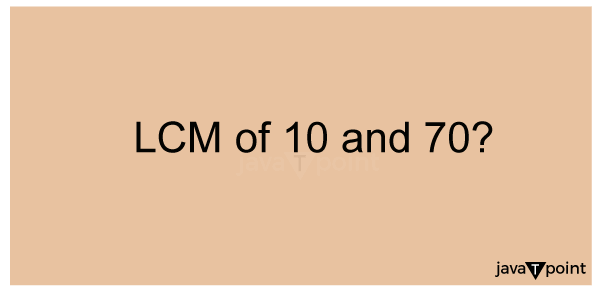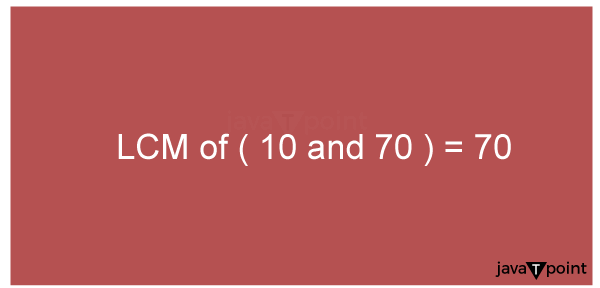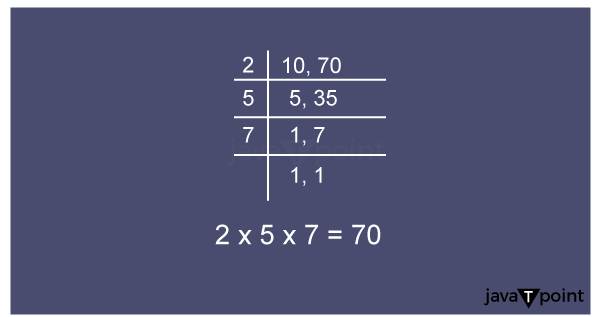LCM of 10 and 70What is LCM?The least common multiple (LCM) is a mathematical concept to find the smallest common multiple of two or more numbers. The LCM of two numbers is the smallest positive integer divisible by both numbers wit.hout leaving a remainder. In our case, we want to find the LCM of 10 and 70, so we need to determine the smallest multiple that both numbers share. 
Calculating LCM of 10 and 70To continue, we might investigate several approaches to calculating the LCM. Each number's multiples can be listed until a common multiple is discovered. We can start by listing the multiples of 10: 10, 20, 30, 40, 50, 60, 70, 80, 90, and so on. The multiples of 70 can also be listed similarly: 70, 140, 210, 280, 350, etc. Upon closer examination, we see that both integers have a common multiple 70. Thus, the LCM of 10 and 70 is 70. For l numbers, however, this hand-listing technique becomes ineffective. Therefore, we may use more systematic approaches to get the LCM. Prime factorization is one such approach. We may find the LCM by dividing the numbers into their prime components and taking into account the maximum power of each prime factor. Let's use prime numbers to factorize 10 and 70. 10 is equal to 2 * 5, while 70 is equal to 2 * 5 * 7. We consider the maximum power of each prime component to get the LCM. In this case, we observe the exponents of 2, 5, and 7, which are all raised to the power of 1. Hence, the LCM of 10 and 70 is, 2*5*7 = 70 When calculating the LCM, the prime factorization technique offers a more organized and effective procedure, especially for bigger numbers with complicated components. It allows us to identify the prime factors and their highest powers, ensuring that the LCM is determined accurately. 
Significance of Finding LCMThe LCM is useful in a variety of mathematical ideas and procedures. Fraction operations are a well-known use of LCM.

LCM Beyond Just Two NumberThe term LCM can be applied to more than just two numbers. In this case, we can either employ the prime factorization approach previously stated or other methods like the "ladder" or "tree" method. These techniques entail methodically computing the LCM of several integers while considering their shared powers and factors. ConclusionIn conclusion, finding the least common multiple (LCM) of two or more integers is aided by the LCM (Least Common Multiple), a fundamental mathematical idea. Despite being a straightforward example, the LCM of 10 and 70 shows how various computation techniques may be used, including manual listing and prime factorization. In addition, we explored the role of LCM in other branches of mathematics, such as number theory, equations, patterns, and fractions. The LCM is a useful tool for problem-solving and analysis because it sheds light on the connections and characteristics of numbers.
Next TopicWhat is 10 to the 3rd Power
|
 For Videos Join Our Youtube Channel: Join Now
For Videos Join Our Youtube Channel: Join Now
Feedback
- Send your Feedback to [email protected]
Help Others, Please Share










